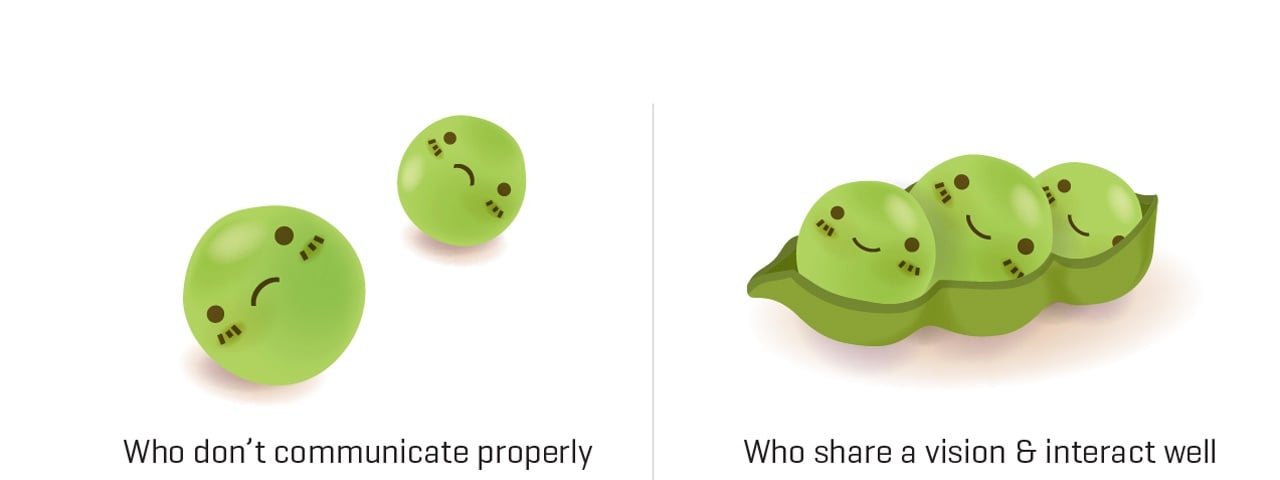6 Ways to Improve Tough Client Relationships
Posted by Robert Wulff on Aug 6, 2015 11:50:00 AM

I recently read an article on 'bad' clients and the 'bad' attitudes of agencies. In reading it, I was reminded of a poignant fact that clients who are willing to pay for the expertise to solve important business challenges are often in a struggle to get a foothold in their market and increase ROI.
They can be difficult to deal with on any number of factors, but our job is to approach such clients with compassion and understanding, and in the end, to help them.
Yet, even as we attempt to stay strong and let difficult interactions fall to the side, tense client relationships can take a toll on the health of our business and our personal well-being.
Here are a few things I have learned to help manage those tumultuous relationships:
1) Don't forget about yourself.
We typically pay little attention to our personal well-being, particularly in times of stress. But people who regularly focus on their physical, mental, and emotional health can better handle difficult situations. It is vitally important to keep yourself healthy and mentally acute in order to be the expert you client expects.
2) Invest in the client relationship.
Create a regular schedule of 'check-ins', and always be on time and prepared. Tri to invest 30 to 60 minutes every week to make sure you and your client are addressing key issues and that your priorities are aligned. I have recently started to create weekly reports to identify what has been completed and what I am working on. This allows for complete transparency in accomplishing tasks and staying on strategy.
3) Use “I” statements.
For clients who might be a bit more abrasive I suggest using "I" statements. I once had a client that regularly yelled at me on the phone and I had trouble focusing and responding appropriately. I decided to approach them with "I" statements. For example; “I have trouble focusing and responding when I hear that tone because I feel like I am being scolded by an elder and I would like to calmly approach this situation to quickly find a solution.”
If you talk about how you are personally experiencing a situation, it is less likely to put the other person on the defensive. You are subtly saying that someone else might not react the same way, but because their tone is giving you a certain reaction, it is difficult to get work done effectively. This may not work every time, but it’s much more productive than saying, “The way you are talking to me is inappropriate.”
4) Meet in person often.
Difficult situations can suddenly get worse when played out over email or the phone. Yet, many of us avoid travel because it requires additional time and money. Even leaving the office to visit a client who is only 10 minutes away can seem difficult to fit into a busy schedule. However, it must be recognized that travel can offer us uninterrupted time to think and plan.
Start thinking of travel in a different way -- a short bit of “me” time where you can do some creative and productive thinking. In the very least, you can use that time to create a strategy to approach a tough in-person meeting, creating a better interaction than if you were to just pick up the phone or send an email.
5) Refer to upper management.
Many early and mid-career professionals have excellent skills, but often lack experience. This is not a weakness, but rather, an opportunity to learn. If you are dealing with a difficult interaction, a senior member of your team probably have very helpful suggestions and ways to approach the situation based off their past experiences. This can be invaluable and will help you build relationships in the office as well.
6) If everything else fails, break up.
Closing a client relationship can be challenging, but sometimes the cost of a relationship outweighs the benefits. These costs include the emotional toll on those who are handling the account, the financial costs when spending more time to maintain a relationship or handle possible disputes on payments, and several other numerous opportunity costs. How much business development are you losing because a client continues to ask you to do more free consulting or handle items not covered in their contract? How likely are you to lose a valuable employee because a client is causing high levels of stress or constantly berating them? How slowly do people perform other tasks because they need recovery time after each interaction with a particular client? How much time is being sunk into just managing one client relationship, when there are several others that are operating without problems.
Breakups can be a necessary part of your professional goals, though I put heavy emphasis on the first words of this paragraph -- if everything else fails. Because as difficult as breakups can be, acquiring new clients and starting over can brings a much larger set of challenges.
Once you have had a long history of positive interactions with your clients, you will start to see a decline in the amount of meetings and an increase in positive client interactions. Remember a happy client is a loyal client!

